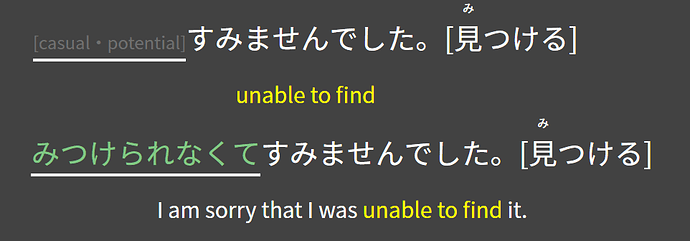I have another suggestion, that might be too much of a pain to implement, but I think will greatly help with an issue I’ve been having, and I’ve seen a few others comment similarly. That is the issue of memorizing the correct answer after just seeing the first few characters of the sentence.
For example, if I see this question…
As soon as I see 風邪 I instantly know I need to use つもりはなかった because I had gotten it wrong enough in the past I’ve seen it so many times, and there are no other sentences that start with 風邪.
So, my suggestion is to use the same basic sentence “template” for a handful of grammar points. For example, 風邪を____(blah blah blah) [引く] could be used for:
- 風邪を引くつもりはなかった。
- 風邪を引きたくない。
- 風邪を引かなくてもいいよ。
- 風邪を引くと、みそしろを食べたい。
- 風邪を引くなら、学校に行かないで。
You get the idea right? It would force me to read the sentence and think about what I need to answer. Especially those last two where I need to think about the difference between と and なら.













